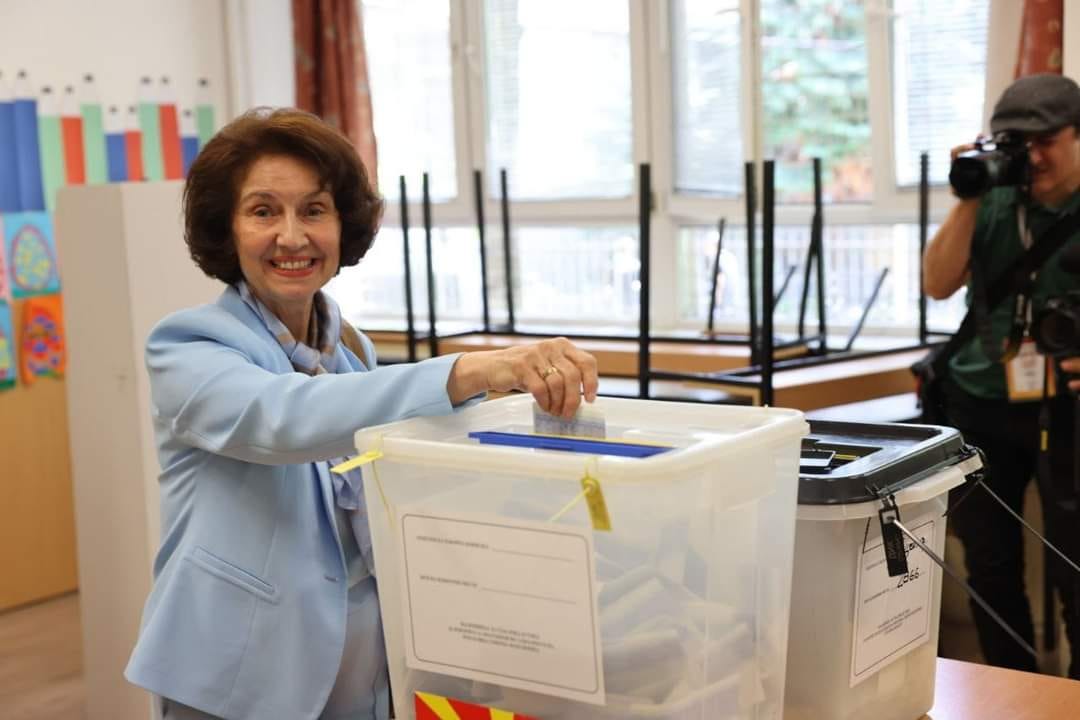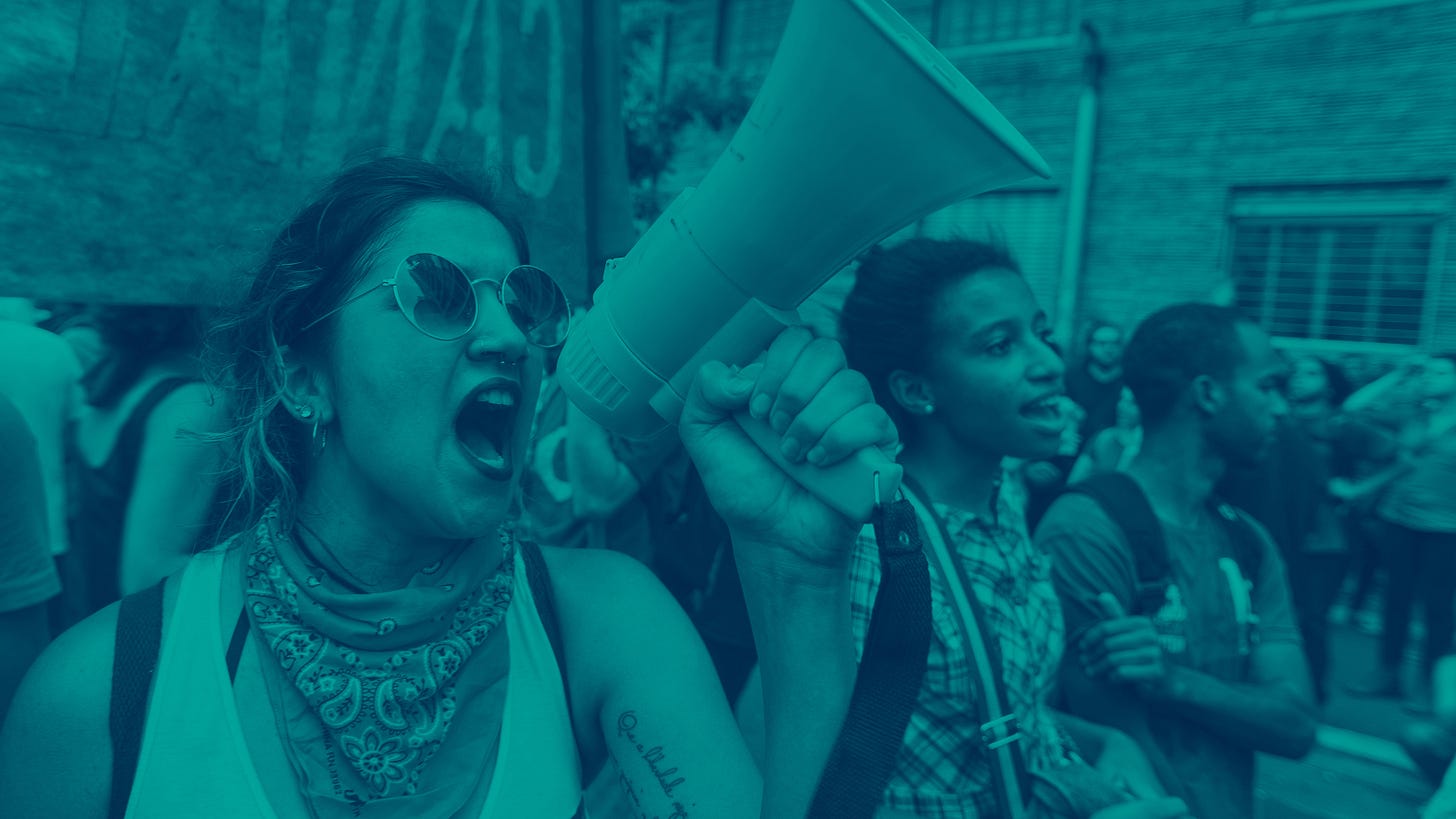Mexico set for history, elections in India and South Africa, and more: All you need to know about women in politics from May
#WomenLead (Issue 150): Your monthly round-up on women in politics
Hello, and welcome to the May (and the 150th!!!) edition of #WomenLead!
We hope you are doing well. May is a big month for us – it’s our birthday month and we turned four recently 🥳🥳. This year, May has also seen a raging heat wave and the second half of India’s Parliamentary elections. For those of you who follow Indian politics, you’d have noticed – the “woman” question has been a big part of the political discourse. But the woman here is the woman voter, not so much the politician.
All political parties have been trying their best to attract women’s votes. But how women vote remains a little enigmatic. This election season has seen political analysts and scholars also acknowledge not just the importance of women’s vote, but also the missing gender lens in some of their own analyses. In an opinion piece in The Indian Express, political scientist Ashutosh Varshney made a rare confession:
“Election travel, at least by men, rarely captures women's preferences as much as men's. Women are not regularly out on the street in large numbers, nor present in tea shops. In the past, a lot of election observers, including me, have made mistakes in assessing electoral trends, primarily because women’s preferences could not be adequately ascertained”.
More of this please! And in this month’s edition, we bring you updates from Bangladesh. India, Ireland, Mexico, North Macedonia, South Africa. In case you had missed last month’s edition, you can read it here.
Election Watch
Tracking women among candidates and winners
🇿🇦 SOUTH AFRICA: On May 29, general elections were held in South Africa to elect members of the national and state legislatures. Women comprised 41.9 percent of all those who contested the polls, SABC News reported. In an encouraging trend, 15 political parties fielded more women than men, while for seven others, the share of women candidates was 40 percent or more. South Africa has among the best representation rates of women in Parliament, which has been enabled by voluntary quotas adopted by the African National Congress (ANC), the largest political party. Given that the ANC has not won an absolute majority this election, we’ll be watching if and how that impacts women’s representation.
🇮🇳 INDIA: On June 01, India concluded the last leg of its long-drawn-out Parliamentary elections to elect the next set of 543 MPs to the Lok Sabha (the lower house of the Parliament). Women comprised a little under ten percent of all the candidates who contested the polls across all parties and seats, data compiled by the Association of Democratic Reforms (ADR) shows. That’s barely an inch up from the previous election of 2019, when women’s share among candidates was nine percent. This is the first election since the Indian Parliament passed a bill to introduce a quota that will reserve a third of all Parliamentary seats for women. However, the bill has not yet come into effect, and the numbers speak clearly on that front (because why do the right thing voluntarily?). Women’s share among MPs in the outgoing Lok Sabha was only 14.7 percent. Will that go up? We’ll find out soon.
🇮🇪 IRELAND: In Ireland, women are likely to comprise a third of all candidates running for local polls scheduled for June, Raidió Teilifís Éireann (RTE) has reported. This would be a record high for the country.
Leaders
Updates about women leading countries, states and movements
In North Macedonia, Gordana Siljanovska Davkova has been elected as the country’s President. She becomes the first woman to hold the position in the country. A political scientist by training, she has held various political positions before rising to the top post. Read more here.

Mexico goes to polls today to elect a new President as well as members of its Parliament. Two women – Claudia Sheinbaum and Xóchitl Gálvez – are the leading contenders, with several polls predicting a victory for Sheinbaum, who is the candidate for the incumbent ruling party, the National Regeneration Movement (Morena) coalition. Either way, the country will end up with a female President for the first time. However, the run up to the historic moment has not been free of misogyny. Both candidates have faced “demeaning attacks about their appearance, their credentials and their ability to lead the nation”, reports the Associated Press.
Policy Watch
Because policy shifts matter
In Bangladesh, a group of women MPs are advocating for a new and dedicated law to enable women’s political participation. They are demanding a law to enable equitable funding for female candidates, since women often face financial constraints and don’t get adequate support from their political parties when they are contesting. Read more in the Dhaka Tribune here.

For context, Bangladesh has a quota for women — 50 seats are reserved exclusively for women in the country’s Parliament, for which women are indirectly elected. These seats are in addition to the 300 directly elected seats. In 2024, only 20 women were directly elected to Parliament along with 280 men (women comprised only 5 percent of all candidates for these seats).
Reading List
The more one learns, there’s only more to learn
“‘I can rise above expectations’: the woman breaking barriers in Pacific politics”: The Guardian
“Men still dominate Uganda’s party politics – women’s participation is mostly cosmetic: The Conversation
“Unlocking growth: The untapped power of women in political leadership”: World Bank Blogs
“As Biden and Trump seek reelection, who are the oldest – and youngest – current world leaders?”: Pew Research Center
“Women in world affairs are a lot more complicated than a stereotype”: World Politics Review
“Glass ceiling remains rock solid in Japanese politics. What can be done?”: The Mainichi
Community Watch
A quick round-up from the community working at the intersection of gender x politics
What are some strategies that work to advance women’s participation in politics? If you’ve ever thought about that question, Carnegie Endowment for International Peace may just have the session for you.
Sign up here to attend a discussion on June 13th (both online/in person).
That’s a wrap for this month! Liked this edition? Then press the ❤️ button and show us some love! And please, please do share this with a friend or on your social media accounts. There’s frankly nothing quite like reader love and endorsement, so please keep it coming! Thank you!
Disclaimer: #WomenLead is a non-partisan newsletter produced in a personal capacity, and does not reflect any institutional affiliation/opinion. In case of any questions, please drop in a message at womenlead.project@gmail.com.





About time.